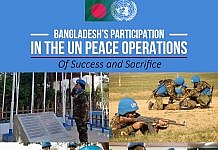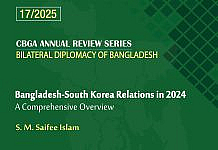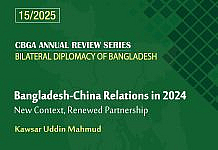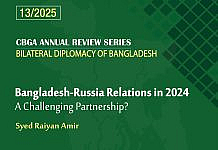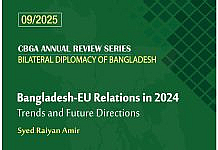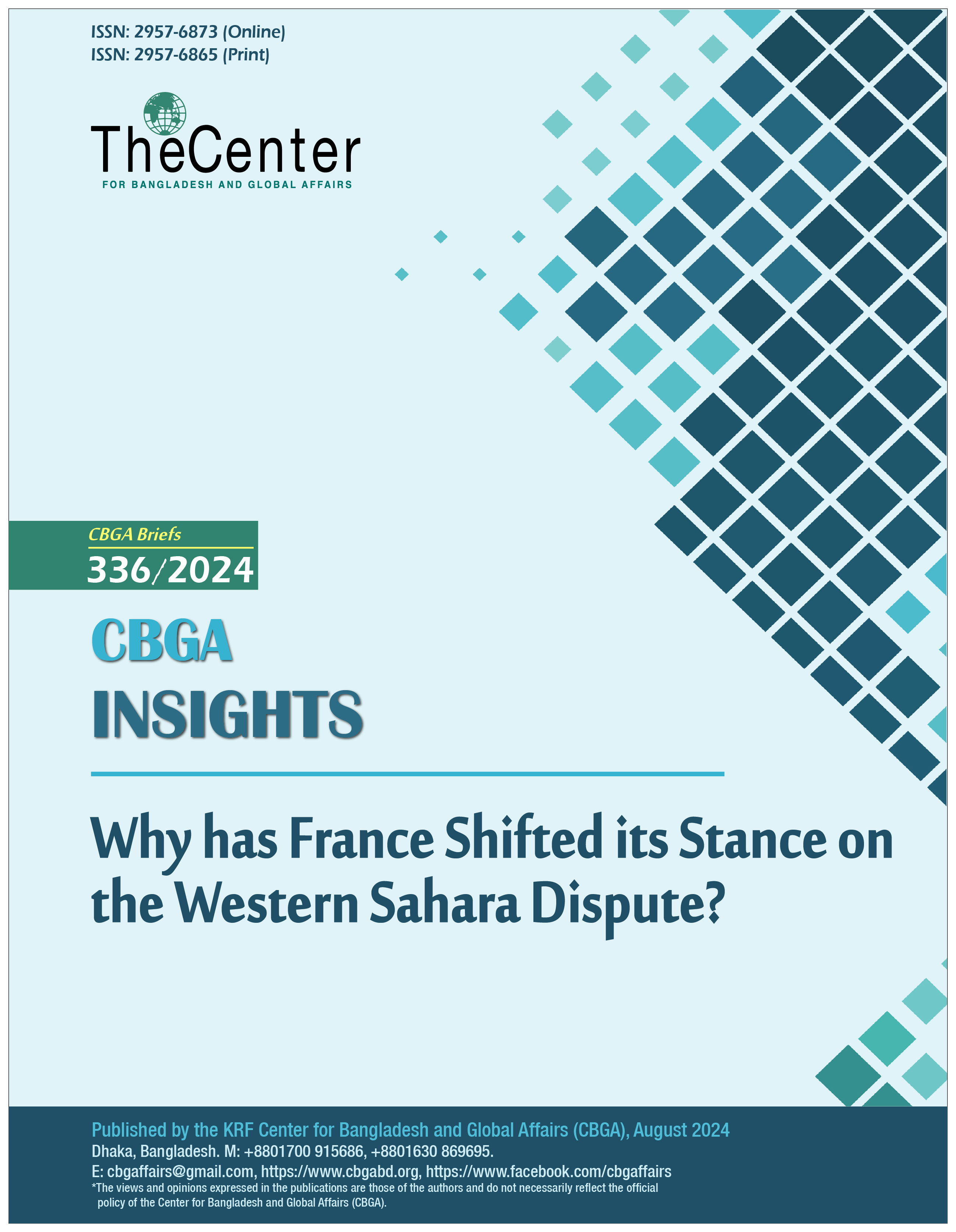
The conflict over Western Sahara is one of Africa’s oldest and is only now entering a new stage in the changing global world. The conflict between Morocco and the Sahrawi people has been marked by a number of international actors’ involvement and diplomatic operations in the course of decades. More so, Macron’s clear support for Morocco’s sovereignty over Western Sahara has changed the conflict dynamics in the recent past. From this shift, this brief analyzes what this means, the history of the Western Sahara conflict, internal and external challenges that confront the POLISARIO Front and Algeria, and lastly, the global impact of France’s new position.
The conflict in the Western Sahara can be dated back to the colonial times when Spain was governing the territory. Morocco seeking to take over the territory as Spain pulled out in the 1970s threatened the Green March of 1975, which saw over 350,000 Moroccans invade Western Sahara. Subsequently, the region was partitioned between Morocco and Mauritania, with the latter holding a sparse population of the area while the former has been controlling the major part of the region. But this decision was opposed by the POLISARIO Front, a Sahrawi nationalist organization that was supported by Algeria. The conflict turned into a frozen one where there was occasional fighting up to the formation of a UN-brokered ceasefire in 1991 that was to be followed by a referendum on independence that has yet to be held.
Historically, regional competition has played a significant role in perpetuating the conflict, especially between Morocco and Algeria. Morocco has historical linkages to Western Sahara and has asserted its sovereignty over this region, while Algeria has backed the POLISARIO Front due to its policies against colonialism and for Arab unity. The conflict has remained stagnant, with Morocco in control of a large part of the territory while the POLISARIO Front controls a small part and acts as the government of the Sahrawi Arab Democratic Republic in exile. For the younger generation of Sahrawis, frustration is building up within the POLISARIO Front. After decades of fighting for independence, many young Sahrawis who were born and raised in other countries do not recognize POLISARIO’s leadership as very effective; they accuse them of being too compromising. This generation is also demanding a more aggressive stance, which places pressure on the leadership of POLISARIO to produce results.
The leadership of the POLISARIO Front, however, appears to be trapped in a dilemma. On one hand, they have to deal with their supporters, who want them independent. On the other hand, they have to face the challenges of international politics, where the process is gradually moving towards the Moroccan autonomy plan. The inability to achieve its goals makes the POLISARIO leadership face a credibility crisis and internal challenges. This has given rise to a debate as to whether the POLISARIO might one day negotiate for less than full independence so long as the outcome can be packaged in a manner that will be viewed as a triumph.
Algeria’s participation in the Western Sahara conflict has been informed by its animosity with Morocco and its principles of anti-colonialism. For Algeria, backing the POLISARIO Front is how it can counter Morocco and establish its dominance. The conflict also plays the role of a domestic crutch in which Algeria leans on to shift the focus of the nation’s population in its internal affairs. Nevertheless, the emerging international relations situation is new for Algeria. Algeria may have to rethink its strategy as international backing for Sahrawi independence diminishing, and Morocco is receiving diplomatic wins. Should the POLISARIO Front incline toward the acceptance of Morocco’s autonomy plan, Algeria would be left in a rather awkward situation. Algeria might want to extract some guarantees from Morocco in return for its continued dominance; for example, the reopening of the Maghreb-Europe Gas Pipeline or assurances of safety on the border. Algeria’s attitude to these changes will play a decisive role in the further evolution of the Western Sahara conflict. If the situation is seen as a threat to the Algerian national interest, it could worsen relations with Morocco or use the situation to try and exert influence in other conflicts in the region. However, this situation could also be used as an opportunity for Algeria to come to terms with Morocco and enter into a more comprehensive agreement that will meet the Algerian concerns while recognizing the new realities in Western Sahara.
Another new feature of French policy in Africa can be considered the recognition of Morocco’s sovereignty over Western Sahara. Traditionally, France had been more balanced, seeing the Moroccan autonomy plan as being serious and genuine, but not the only solution. But the presidential announcement on July 30, 2024, has a strategic connotation that goes beyond this policy choice and is a reflection of President Macron’s France’s geopolitical interest in Morocco. France’s influence in West Africa was dwindling in recent years due to the local resistance to military interferences in the Sahel and a series of coups that threatened French presence in the region. The emergence of new players such as Russia’s Wagner Group, Chinese businessmen, and a growing American engagement has made it even more challenging for France. In view of these challenges, France has endeavored to boost its alliances, and Morocco has proven a strategic ally.
Morocco’s relevance to France is in the latter’s increased soft power in Africa. Morocco has been actively involved in the economic, cultural, and Islamic connection with the subsaharan countries as a link between Africa and Europe. Moroccan banks and telecommunication companies have invested heavily in West Africa, and Moroccan airline companies offer important links to the landlocked areas. On cultural diplomacy, Morocco has invested in scholarships, cultural exchange, or in religious missions and institutions. In this case, France will be able to regain its lost influence in Africa by using Morocco’s networks and financial muscle on the Western Sahara issue. It also lets France maintain its influence in Africa in the background while Morocco steps out to be the dominant power in the region.
The international trend is gradually shifting in Morocco’s favor, with more countries endorsing Morocco’s autonomy plan as the only viable political solution to the western Sahara conflict. French support contributes to this trend, which makes other Western and African countries begin to shift to a negotiating process. This transformation is, in fact, indicative of the emerging new order in Africa, where the long-standing dominant powers have been overthrown and new partners are being sought.
For the Sahrawi people and their supporters, this is a challenging time. Full independence continues to seem less attainable, and Morocco’s sovereignty over Western Sahara seems to become more tangible. Yet, there are still areas where the parties can negotiate. The POLISARIO Front and Algeria might try to gain some concessions from Morocco that meet their major demands, including cultural rights, economic returns for the Sahrawi people, and security provisions that would be beneficial to both parties. Overall, it seems that the conflict over Western Sahara will be solved through diplomatic means that offer partial solutions for the Sahrawis but are acceptable to all sides. The problem of the situation will be in making sure that this settlement is sustainable and that it deals with the root causes of the conflict, which have been present in the region for decades.
The Western Sahara conflict is in a delicate stage, as the major powers are aligning themselves with Morocco’s plan of autonomy. The recognition of Moroccan authority by France is a new phase in the political map of Africa and changes occurring in that continent. As the conflict progresses, the attention will shift to the search for appeasement that will satisfy both Morocco and the POLISARIO Front, Algeria, and the Sahrawi people. While the result may not be satisfactory to all the stakeholders, it presents a new way forward for the two sides after fifty years of no movement. The subsequent measures will define whether this new page in the history of Western Sahara will bring the desired peace and stability to the region.
– Tahia Afra Jannati is a Research Intern at the KRF Center for Bangladesh and Global Affairs (CBGA).


